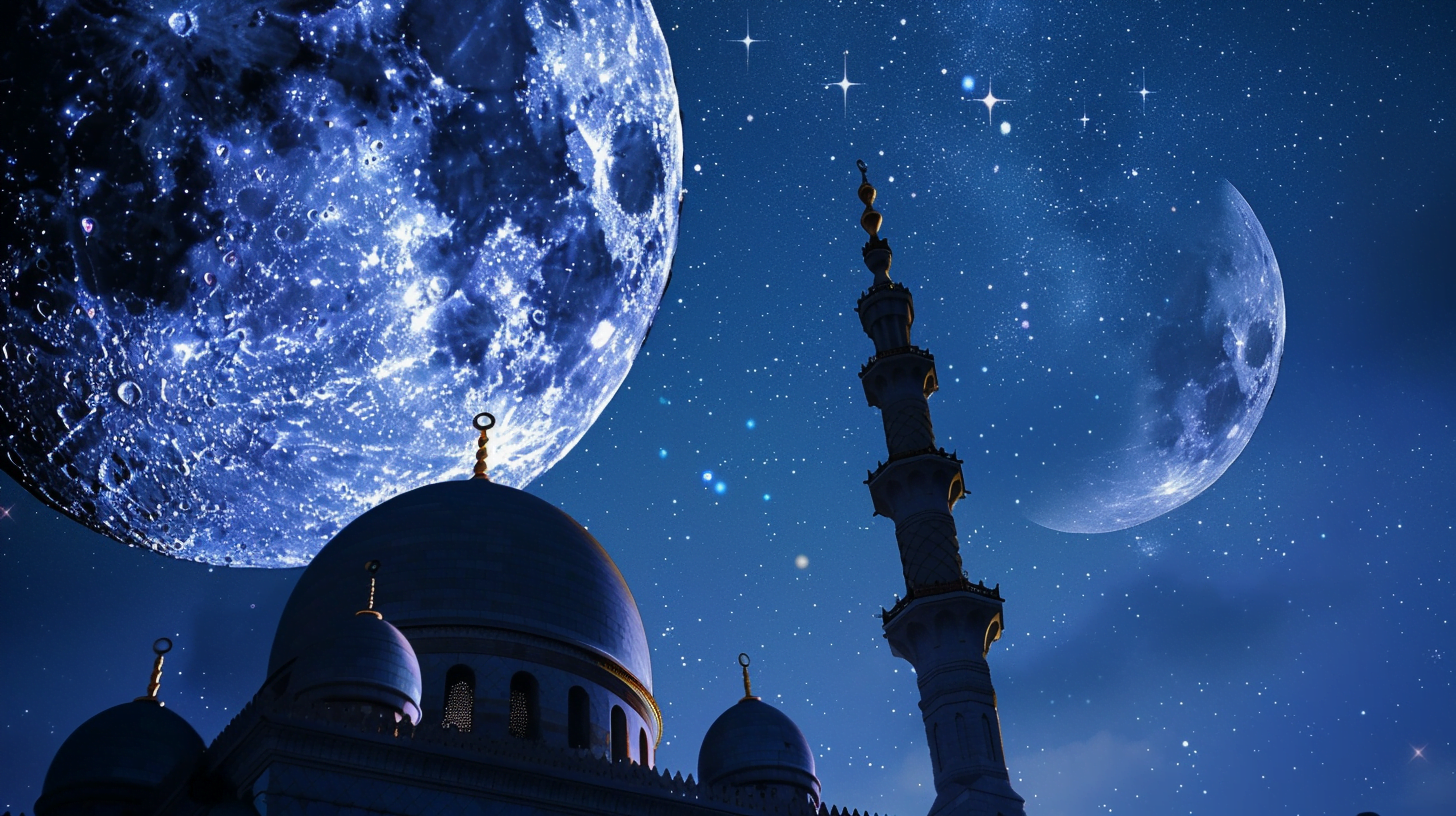Muslims throughout history have displayed a distinct fascination with astrology, delving deep into its intricate practices and complex charts. Astrology, a system of belief that relies on the influence of celestial bodies on human affairs, found a place within the Islamic world, captivating both scholars and everyday individuals alike. The allure of understanding the stars and deciphering their messages became an integral part of Islamic culture, with Muslims actively seeking answers and guidance from the cosmic realm. This article aims to explore the reasons behind the Muslims’ enduring interest in astrology, shedding light on the historical and cultural factors that contributed to this phenomenon.
The Historical Connection between Muslims and Astrology
Astrology in Ancient Islamic Civilization
Astrology has a long-standing historical connection with Islamic civilization, with its roots dating back to the ancient times. During the height of the Islamic Golden Age, which spanned from the 8th to the 14th centuries, Muslim scholars made significant advancements in various fields, including astrology. Muslim astronomers and mathematicians delved into the study of celestial bodies, believing that their movements and positions could provide insights into human affairs and destiny.
Muslim Scholars and Astrology
Muslim scholars played a pivotal role in the development and understanding of astrology in Islamic civilization. Renowned figures such as Al-Kindi, Al-Biruni, and Al-Farabi made substantial contributions to the field, not only by translating ancient Greek texts but also by conducting original research. These scholars integrated astrology into their broader studies of astronomy and mathematics, considering it a legitimate discipline worthy of exploration.
The Spread of Astrology in Muslim Lands
Astrology gained widespread popularity among the Muslim population throughout the Islamic lands. Its influence was not limited to a specific region but spread across the vast territories of the Islamic Empire, encompassing areas stretching from Spain in the west to Central Asia in the east. As the Islamic Empire expanded, it absorbed various cultures and knowledge systems, including astrology, which permeated through the society and became an integral part of everyday life.
Islamic Perspective on Astrology
The Qur’an and Astrology
Islamic teachings, as laid out in the Qur’an, touch upon various aspects of celestial bodies and their significance. While the Qur’an acknowledges the existence of stars and their role as markers for navigation and orientation, it does not explicitly endorse or condemn astrology as a practice. Scholars interpret Quranic verses differently, leading to divergent opinions regarding the significance of astrology within Islam.
The Hadith and Astrology
The Hadith, the collection of Prophet Muhammad’s sayings and actions, also carries implications for astrology. Like the Qur’an, the Hadith does not explicitly address astrology. Some scholars argue for its prohibition, citing narrations that discourage divination and the prediction of future events. Others point to narrations that suggest a more nuanced stance, emphasizing the permissibility of seeking knowledge about the stars and their movements for practical purposes.
Scholars’ Opinions on Astrology
Islamic scholars throughout history have held differing opinions on the permissibility and validity of astrology. Some scholars, such as Al-Kindi and Al-Farabi, viewed astrology as a legitimate science that could offer useful insights into human existence. These scholars recognized astrology’s potential to uncover patterns and relationships between celestial phenomena and earthly events.
On the other hand, scholars like Ibn Taymiyyah and Ibn Qayyim Al-Jawziyya firmly rejected astrology, regarding it as an irrational and unscientific practice. They argued that astrology contradicted the principles of Islamic theology and the idea of free will, asserting that humans should rely solely on divine guidance and wisdom.
Astrological Practices in Muslim Cultures
Astrology in Everyday Life
Astrology’s influence extends beyond the realm of theoretical knowledge and finds practical applications within Muslim cultures. Many Muslims consult astrologers and study horoscopes to gain insights into various aspects of life, such as career, relationships, and personal well-being. Astrology provides a framework through which individuals seek guidance and make decisions, believing that celestial alignments and planetary positions can affect their daily lives.
Astrology in Marriage and Compatibility
Astrology plays a significant role in shaping ideas about compatibility and marriage within Muslim societies. The belief in astrological compatibility often leads individuals and families to consult astrologers before making marriage arrangements. By analyzing the birth charts of potential partners, astrologers offer insights into the potential harmony or challenges that may arise in the marital relationship, influencing the decision-making process.
Astrology in Health and Healing
In some Muslim cultures, astrology is also associated with health and healing. Traditional medical practices, such as Arabic and Persian medicine, often incorporate astrological elements. Astrologers assess the alignment of celestial bodies and their possible influence on a person’s health, prescribing specific treatments, remedies, or dietary guidelines based on these interpretations. This integration of astrology with traditional medicine reflects the multifaceted nature of astrology in Muslim societies.
The Influence of Western Astrology on Muslims
Introduction of Western Astrology to Muslim Countries
With the advent of colonialism and globalization, Western astrology gradually made its way into Muslim countries. European powers, through their colonial endeavors, brought with them not only political and economic influence but also Western knowledge systems, including astrology. This introduction of Western astrology to Muslim lands had a profound impact on the beliefs and practices surrounding astrology among Muslim populations.
Contemporary Muslim Interest in Western Astrology
In recent years, there has been a noticeable increase in Muslim individuals expressing interest in Western astrology. Factors such as increased access to information through the internet, globalization, and the influence of Western popular culture have contributed to this trend. Many Muslims engage with Western astrological practices in conjunction with their existing beliefs, blending different astrological perspectives to gain a more comprehensive understanding of themselves and their lives.
Astrology as a Cultural and Social Phenomenon
Astrology and Identity Formation
Astrology serves as a tool for self-expression and identification within Muslim communities. Individuals often use astrological symbols and attributes as a means to establish their unique identities. By identifying with specific zodiac signs or engaging in astrological practices, Muslims may seek to understand themselves better and find a sense of belonging within a broader cultural and social context.
Astrology and Popular Culture
Astrology’s integration into popular culture has further solidified its position as a cultural phenomenon among Muslims. Astrological content, including horoscopes, astrology-themed memes, and daily forecasts, has gained significant traction on various social media platforms. Many Muslims consume and share this content, contributing to the normalization of astrology within everyday conversations and interactions.
Astrology as a Means of Self-Understanding
For many Muslims, astrology serves as a means of self-understanding and introspection. By exploring their birth charts and astrological profiles, individuals gain insights into their personality traits, strengths, weaknesses, and potential life paths. This self-reflective aspect of astrology resonates with Muslims seeking personal growth and a deeper understanding of their place in the world.
Criticism and Controversy Surrounding Muslim Interest in Astrology
Theological Objections to Astrology
Astrology’s rise within Muslim communities has not been without controversy. Theological objections to astrology stem from concerns over its compatibility with Islamic teachings. Critics argue that astrology may promote fatalism, diverting individuals’ attention from the concept of divine decree and predestination in Islam. The belief that human actions and choices are ultimately determined by celestial forces contradicts the Islamic principles of free will and personal responsibility.
Critiques of Pseudo-Scientific Claims
Another aspect of criticism leveled against astrology in Muslim societies pertains to the often pseudo-scientific and unverifiable nature of astrological claims. Skeptics argue that astrology lacks empirical evidence and scientific validity, relying on generalizations, vague predictions, and confirmation bias. These critiques challenge the credibility and rationality of astrology and caution against its acceptance without scrutinizing its claims.
Perceived Conflict with Islamic Beliefs
Astrology’s perceived conflict with Islamic beliefs also fuels controversy. Some Muslims argue that astrology’s emphasis on determinism undermines the concept of God as the ultimate controller of the universe. They express concerns about astrology leading to the worship of celestial bodies or assigning them powers beyond their natural influence. These reservations reflect broader debates within Muslim communities concerning the boundaries of religious orthodoxy and the assimilation of non-Islamic practices.
Astrology within Islamic Scholarship
Scholars Supporting Astrology
Despite the controversies surrounding astrology, some contemporary Islamic scholars argue in its favor. They assert that astrology, when approached with caution and within the bounds of Islamic ethics, can be a permissible practice. These scholars point to the historical contributions of Muslim astrologers, emphasizing the compatibility of astrology with Islamic teachings and the pursuit of knowledge.
Scholars Rejecting Astrology
On the other side of the spectrum, numerous influential Islamic scholars reject astrology outright, viewing it as superstitious and inconsistent with Islamic faith. They contend that relying on celestial alignments for guidance contradicts the Islamic principle of Tawhid (the oneness of God) and undermines human agency and accountability.
Debates and Dialogues within Islamic Intellectual Circles
Astrology’s status within Islamic scholarship sparks ongoing debates and dialogues among Muslim intellectuals. These discussions aim to reconcile Islamic teachings with diverse perspectives on astrology. Scholars propose different methodologies for engaging with astrology within an Islamic framework, with some advocating for a critical, rational approach, while others maintain a more cautious stance.
Astrology and Rationality
The Compatibility of Astrology with Islamic Reasoning
The issue of astrology’s compatibility with Islamic reasoning remains a subject of inquiry and debate. Proponents argue that astrology can be reconciled with rationality, highlighting its historical integration into Islamic intellectual pursuits and scientific advancements. They assert that interpreting celestial phenomena in relation to human life can conform to logical and rational principles, thereby validating astrology as a legitimate field of study.
Rationalist Approaches to Astrology
Rationalist approaches to astrology within the Muslim community aim to scrutinize astrological claims through scientific scrutiny and reason. Those advocating such methodologies strive to separate scientifically verifiable astronomical observations from astrological interpretations, distinguishing between astronomy as a disciplined science and astrology as a metaphysical belief system. By filtering out pseudo-scientific elements, they seek to present a more rational version of astrology.
Skepticism within the Muslim Community
Skepticism regarding astrology is prevalent within the Muslim community, with individuals exercising caution when considering astrological claims. Many Muslims recognize the potential for manipulation and exploitation in the practice of astrology and critique it as being inherently subjective and arbitrary. This skepticism mirrors broader movements advocating for critical thinking, rationality, and evidence-based approaches to knowledge and belief systems.
Astrology’s Evolution in Contemporary Muslim Societies
Shifts in Attitudes towards Astrology
Attitudes towards astrology within contemporary Muslim societies have undergone significant shifts over time. While astrology was historically more widely accepted and integrated into everyday life, there has been a growing polarization in recent years. Some Muslims continue to place importance on astrology, integrating it into their spiritual and personal journeys. Others distance themselves from the practice, perceiving it as incompatible with their religious beliefs or scientific reasoning.
The Role of Technology in Popularizing Astrology
The advent of technology, particularly the internet and social media platforms, has played a pivotal role in the popularization of astrology among Muslims. Online astrology resources, including websites, apps, and social media accounts, provide convenient access to astrological information, fostering a global community of individuals interested in astrology. Technology has enabled the dissemination of astrological content to a wider audience, contributing to its increased visibility and influence.
Young Muslims and Astrology
Among younger generations of Muslims, astrology holds a particular fascination. This interest often stems from a quest for self-understanding, navigating personal relationships, and seeking guidance amidst an increasingly complex and interconnected world. Young Muslims actively engage with astrology, sometimes blending traditional Islamic teachings with astrological insights in their pursuit of meaning and purpose.
Conclusion
The fascination of Muslims with astrology is a multidimensional phenomenon that intersects with history, culture, religion, and personal inclinations. Throughout Islamic civilization, astrology played a significant role in shaping beliefs, influencing practices, and contributing to intellectual pursuits. While astrology within Muslim societies faces criticism and controversy, it retains a place within the diverse range of Muslim experiences and perspectives. Whether as a means of self-understanding, a cultural and social phenomenon, or a subject of scholarly debates, astrology continues to shape and reflect the complexities of Muslim engagement with the world around them.



